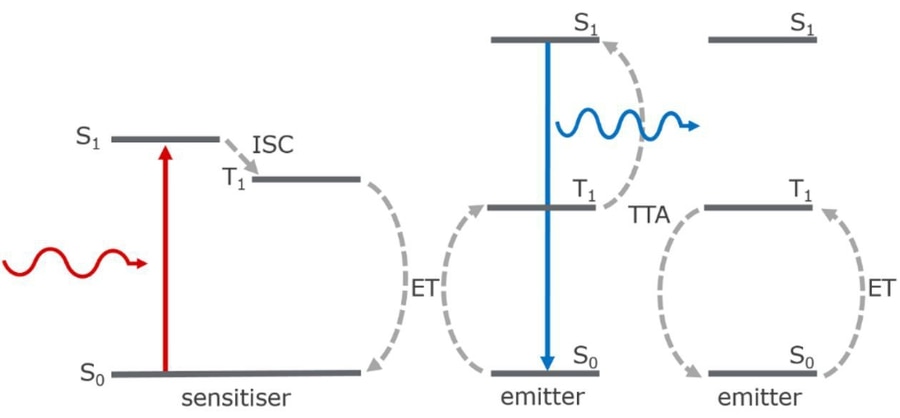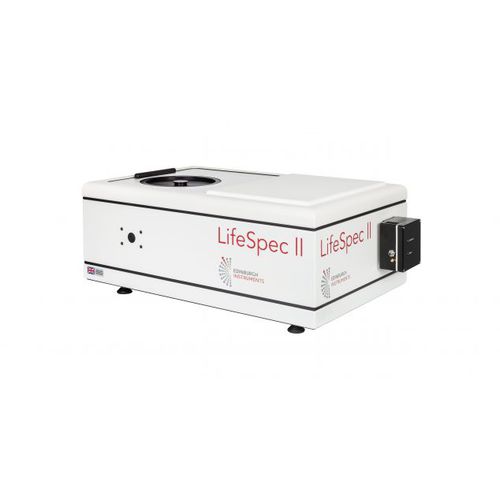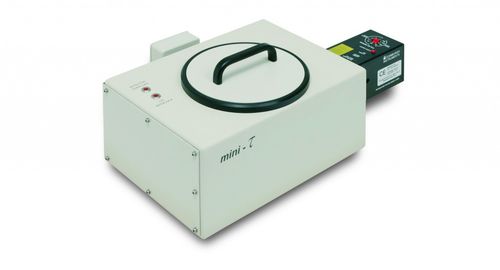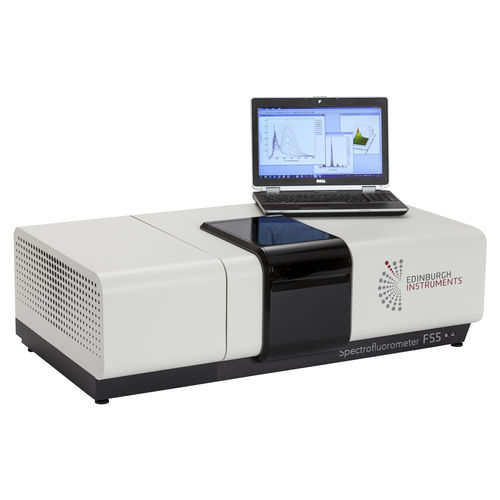
#Industry News
What is Upconversion?
Photon upconversion is the sequential absorption of two or more long wavelength photons leading to the emission of a photon with a shorter wavelength.
The fact that the emission is at a shorter wavelength than the excitation light makes upconversion distinct from other forms of photoluminescence such as fluorescence and phosphorescence where the emission always occurs at a longer wavelength, and upconversion luminescence is therefore also known as anti-Stokes fluorescence. Upconversion occurs through the sequential absorption of photons and is usually considered distinct from two-photon absorption processes where the photons are absorbed simultaneously.
Upconversion has many important medical and technological applications such as improved biological imaging and sensing using upconversion nanoparticles, enhancing the light-harvesting of solar cells,2 and deeper tissue penetration in photodynamic therapy for cancer treatment, amongst others.







